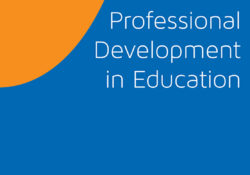tandfonline.com – Beyond content-focused professional development: powerful professional learning through genuine learning communities across grades and subjects
tandfonline.com har udgivet en rapport under søgningen „Teacher Education Mathematics“: ABSTRACT ABSTRACT Articulations of effective teacher professional development (PD) consistently foreground a focus on curriculum content and how best to teach it. Consequently, when teachers work together on pedagogy they typically work with colleagues who have similar specialisations, focusing on a specific subject or part of the curriculum. Arguably, however, pedagogical practices cut across grades and subjects, which signals the possibility of effective PD that includes diverse teachers. In this paper, we analyse the impact of a pedagogy-focused approach to PD called Quality Teaching Rounds (QTR), recently tested under randomised controlled trial conditions. Drawing on post-intervention interviews with 96 teachers and leaders at 24 schools in NSW, Australia, we demonstrate that QTR generated fresh insights about pedagogy and students, enhanced… Continue Reading
